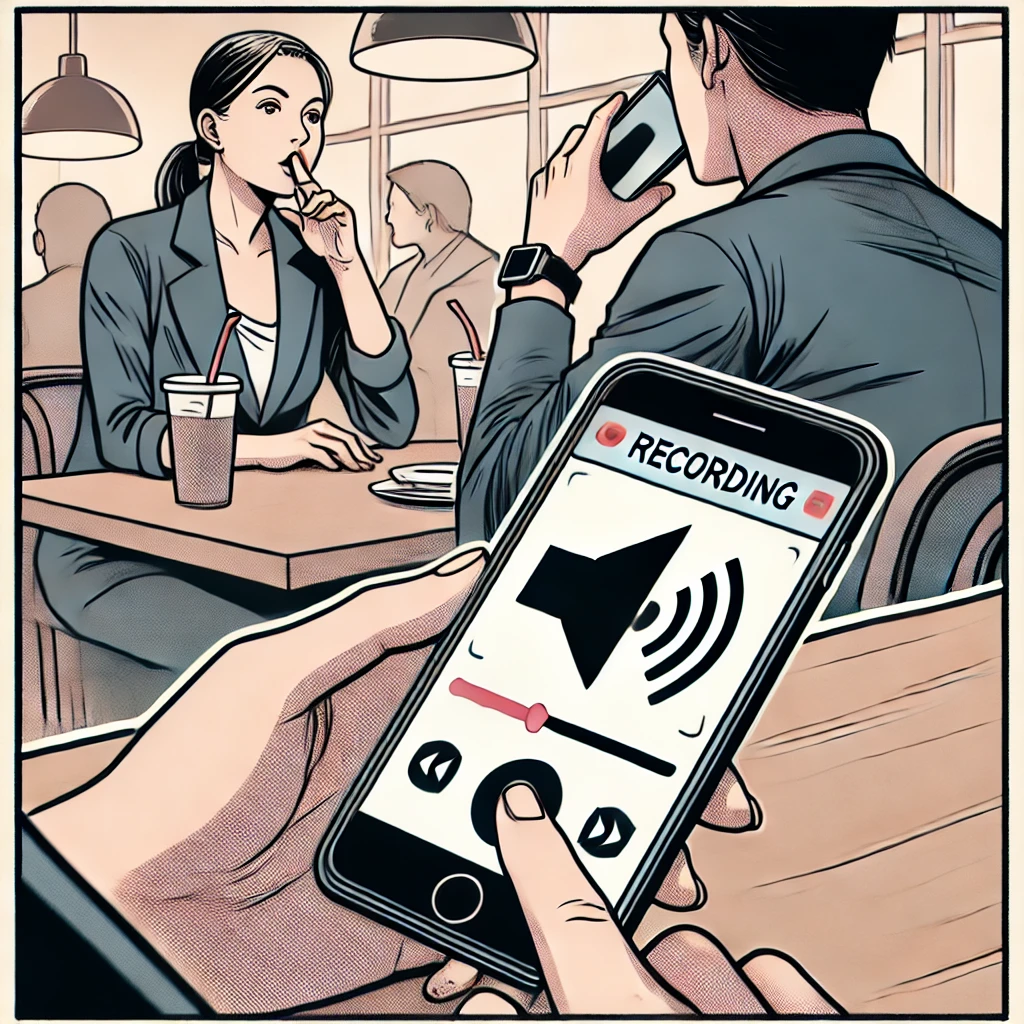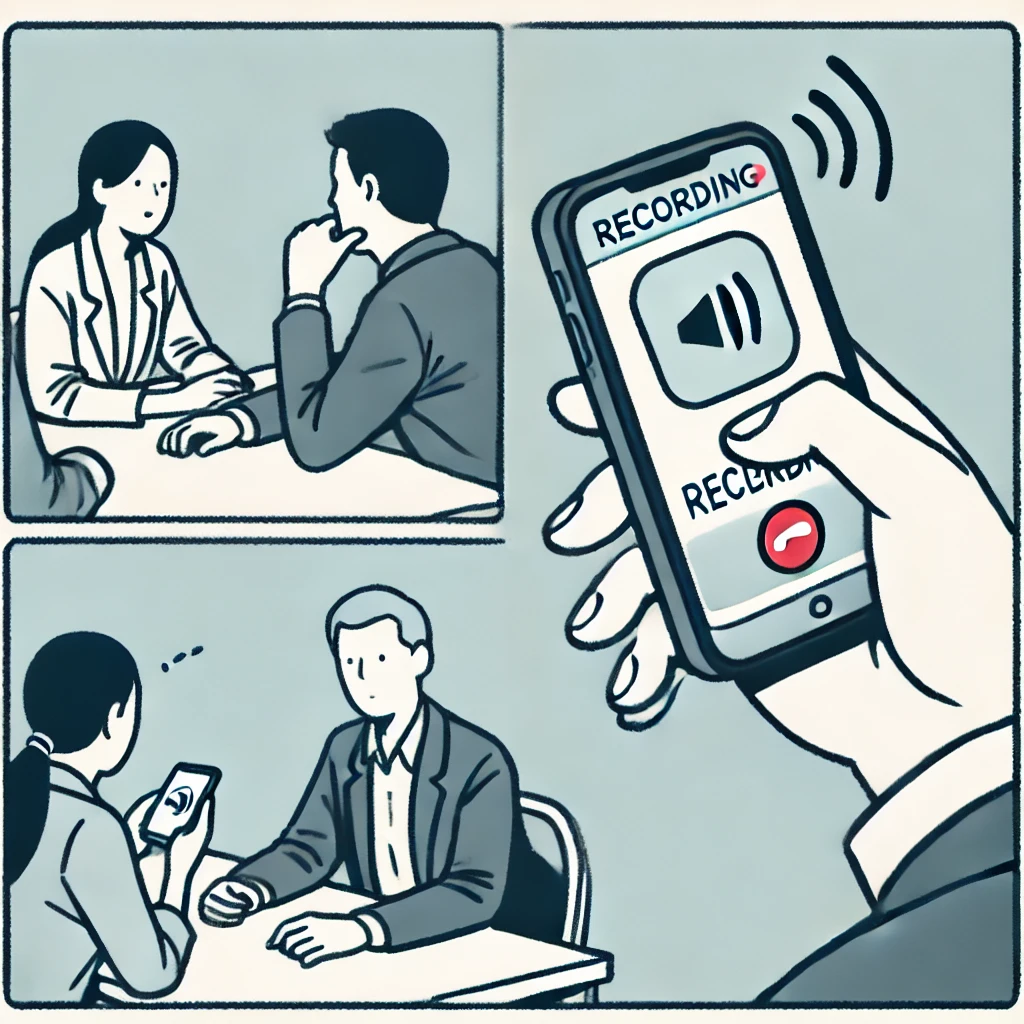If you’ve ever wanted to record conversations at work secretly, you’re not alone. Many employees start looking into this when dealing with toxic management, discrimination, or workplace disputes and need solid proof. But there are some serious legal and ethical concerns before you press record.

Is It Legal to Record Conversations at Work?
The short answer: it depends.
Laws around recording conversations vary depending on where you live. In the U.S., the biggest distinction is between one-party consent and two-party consent states.
- One-party consent states: As long as you are part of the conversation, you can record it without telling the other person. This includes states like New York and Texas.
- Two-party consent states: Everyone in the conversation has to know they’re being recorded. California, Florida, and Pennsylvania fall into this category.
If you’re outside the U.S., the rules are different. In Canada, for example, you can generally record conversations you’re part of, but strict privacy laws exist around sharing that recording. In the U.K., employees are usually not allowed to record at work without explicit consent from everyone involved.
💡 Pro tip: Check local laws or talk to an employment lawyer if unsure. Illegally recording someone could backfire big time.
Why Do Employees Want to Record Conversations at Work?
Most people don’t start recording workplace conversations for fun. It usually happens when they’re trying to protect themselves. Some common reasons include:
- Discrimination or harassment – If you’re experiencing workplace discrimination, having an audio recording could support a legal claim.
- Retaliation fears – Employees often worry about speaking up because they fear getting fired or demoted. A recording can serve as proof of retaliation.
- Verbal agreements – If a boss promises a raise or promotion but later denies it, a recording could be useful.
- Toxic work culture – In some cases, employees record meetings with managers who gaslight, manipulate, or make unethical demands.
Real-World Case: When a Recording Made a Difference
In 2019, an employee at a major tech company secretly recorded a meeting in which her manager admitted to firing someone because they were pregnant. She later used the recording in a lawsuit, which resulted in a settlement. Cases like this are why employees often feel the need to record—to protect themselves when HR doesn’t.
Can You Use a Recording as Evidence?
Even if you legally record a conversation, it doesn’t always mean you can use it in court.
- Employment lawsuits: In one-party consent states, a recording can be strong evidence in a discrimination or wrongful termination case.
- HR complaints: Some companies allow recordings as part of an internal complaint, but many don’t.
- Union environments: If you work in a unionized job, there might be specific rules about recording conversations. Some collective agreements explicitly prohibit it.
A 2022 study from the National Employment Law Project found that companies often try to dismiss audio evidence, but when recordings are legal, courts will usually accept them.

What Happens If You Get Caught Recording Conversations At Work?
Recording at work is risky. If your employer finds out, here’s what could happen:
- Disciplinary action – Many companies have policies against recording without permission, even in a one-party consent state. You could face suspension or termination.
- Legal trouble – If you record in a two-party consent state without permission, you could be sued or even face criminal charges.
- Damaged workplace relationships – If coworkers or managers find out you’ve been secretly recording, it could ruin trust and worsen your work environment.
Alternatives: If You Can’t Record Conversations at Work
If recording is too risky or illegal where you are, there are other ways to document what’s happening.
- Take detailed notes – After a conversation, write down exactly what was said, who was there, and the time/date. Notes can be used as evidence.
- Send a follow-up email – If your boss makes a promise, email them afterward: “Just confirming our discussion today where you mentioned the promotion would be finalized next quarter.” If they don’t correct it, that’s proof.
- Use a witness – If you’re worried about something shady happening, bring a coworker into the conversation.
Final Thoughts
Before you decide to record conversations at work, make sure you know the laws in your area and consider the risks. In some cases, a recording could help protect your rights. In others, it could land you in legal trouble or cost you your job. If you’re dealing with discrimination or workplace abuse, consulting an employment lawyer is always the safest bet.
📌 Key takeaway: If you’re thinking about recording conversations at work, do your research first. It could make or break your case.
Author: Alex Monroe
Bio: Alex Monroe is an employment law writer with experience in workplace rights, HR policies, and corporate ethics.

